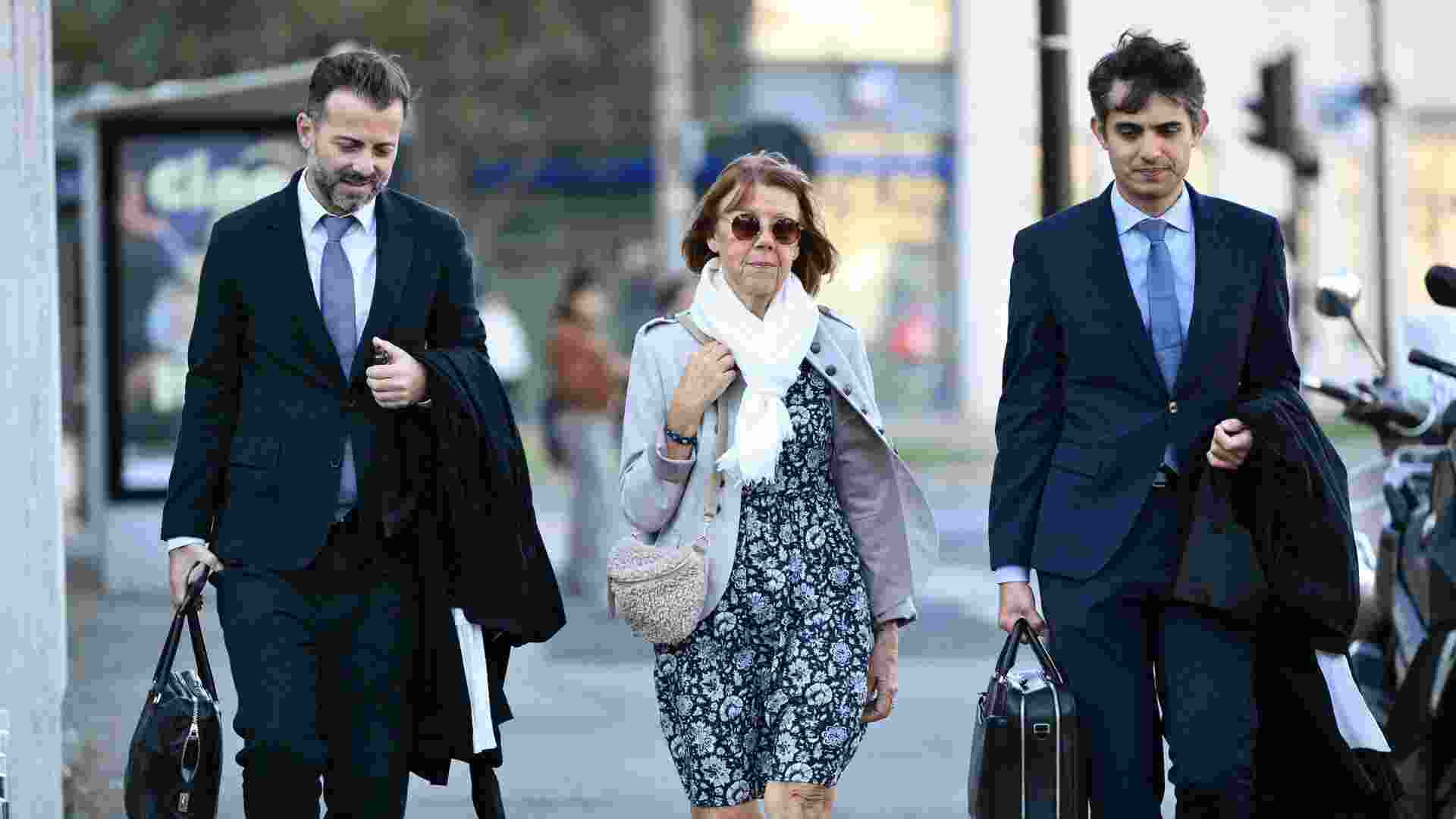Chants of support filled the air as 72-year-old Gisele Pelicot, hailed as a rising feminist icon, entered the Avignon courtroom for a mass rape trial that has shaken France. Known for her chic style and auburn bob cut, Gisele’s decision to waive anonymity has drawn attention to her traumatic ordeal, making the trial public.
Three weeks prior, the country was stunned to learn that her husband, Dominique Pelicot, had been inviting men to rape Gisele while she was drugged unconscious. This horrifying discovery occurred when Dominique was caught by a security guard filming women in a supermarket. The subsequent investigation revealed nearly 20,000 images and videos on his computer, showing Gisele being assaulted repeatedly over decades. Gisele recalled the moment she first saw the footage as “an explosion, a tsunami,” stating that her world had fallen apart after 50 years of marriage.
Years of Abuse and Betrayal
The investigation showed Dominique sedated Gisele with a mixture of sleeping pills and anti-anxiety medication, leading her to believe she was suffering from memory loss due to Alzheimer’s disease. This allowed him to recruit men online, perpetuating the abuse. Gisele, displaying remarkable strength, told the court, “Given what I have been through, nothing disturbs me.” Of the 50 men accused, some admitted to their crimes, while others denied it was rape. Gisele forcefully responded, “For once in your life, take responsibility for your acts.”
Waiving Anonymity
Choosing to waive her anonymity, Gisele’s goal is to raise awareness about drug-facilitated sexual violence, declaring, “Shame changes sides,” shifting the burden onto the perpetrators rather than victims. Her face has since become symbolic of the French feminist movement, appearing on newspapers, walls, and television screens, making her an emblem of resistance.
Historic Trial
The trial has sparked widespread discourse on masculinity and consent, with thousands rallying in support of Gisele. A letter signed by over 200 men, published in Liberation, called for an end to the objectification of women’s bodies, denouncing societal norms that excuse male behavior. Historian Ivan Jablonka noted that this trial is “historic” due to the number of defendants involved, reminding the public that rapes often happen in familiar settings.
Despite overwhelming support, not all reactions have been positive. Local officials’ dismissive remarks, such as the mayor of Mazan’s comment, “After all, no one died,” have drawn widespread outrage, prompting an eventual apology.
A Fight for All Women
Gisele’s testimony continues to reveal the horrifying details of her abuse, including contracting multiple sexually transmitted diseases and the risk of HIV. Despite the trauma, she remains steadfast in her mission, saying, “I want it to be exemplary.” Her fight is not just for herself, but for all women who suffer in silence from sexual violence. She also expressed gratitude towards the police officer who first uncovered her husband’s crimes, acknowledging, “He no doubt saved my life.”
As the trial progresses, Gisele Pelicot’s unwavering resolve to hold her abusers accountable continues to inspire. While Dominique has pleaded guilty, the full reasons behind his heinous actions remain unclear. The trial, expected to last until December 2024, stands as a landmark moment in the fight against sexual violence.







